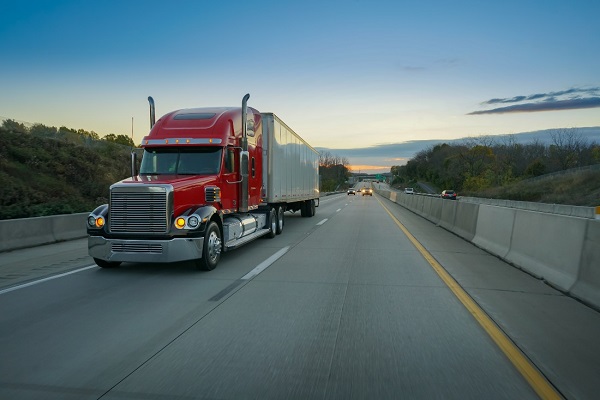Full Truckload (FTL) services are a cornerstone of efficient logistics, especially for businesses requiring the transport of large quantities of goods.
This comprehensive guide explores the benefits of FTL, its processes, and its significance in modern supply chains. We’ll also address common questions about FTL services to ensure a clear understanding of this critical logistics option.
What is the Meaning of FTL Service?
FTL stands for Full Truckload, a shipping service in which a single truck is entirely dedicated to one shipment. Unlike Less-than-Truckload (LTL) shipping, where multiple smaller shipments from various businesses share space, FTL services cater exclusively to one customer’s freight.
This approach is ideal for businesses needing to transport large volumes of goods, particularly when speed, security, or specific handling requirements are critical.
What Is Considered a Full Truckload?
A full truckload refers to cargo that utilizes the total capacity of a truck. This capacity can be based on weight or volume:
- Weight Capacity: Typically ranges between 40,000 and 45,000 pounds in the United States, depending on the truck and local regulations.
- Volume Capacity: Common trucks have space for about 24 to 26 pallets of standard dimensions.
Even if a shipment doesn’t fully occupy the truck, businesses may opt for FTL services to ensure direct and secure transit without sharing space with other shipments.
The FTL Process: How It Works
FTL shipping follows a straightforward yet highly efficient process:
- Shipment Preparation:
- Businesses determine the cargo size, weight, and specific handling needs.
- Proper packaging and labeling are done to ensure safe transit.
- Booking:
- Companies book an FTL service through a logistics provider or directly with a carrier.
- The truck is reserved exclusively for the shipment.
- Loading:
- The freight is loaded directly onto the truck at the origin point.
- Careful loading ensures even weight distribution and minimizes damage risks.
- Transport:
- The truck proceeds directly to the destination without intermediate stops for loading or unloading other cargo.
- This direct route reduces transit time significantly.
- Unloading:
- At the destination, the shipment is unloaded and delivered as per the client’s requirements.
What Do FTL and LTL Stand For?
- FTL (Full Truckload): A shipping service where a single shipment occupies the truck’s full capacity.
- LTL (Less-than-Truckload): A service where multiple shipments from different businesses share space in one truck.
The choice between FTL and LTL depends on factors like shipment size, urgency, and budget.
Advantages of FTL Shipping
- Faster Delivery Times:
- FTL shipments follow a direct route, avoiding detours for additional pickups or deliveries.
- Enhanced Cargo Security:
- Since the shipment isn’t shared with others, there’s less risk of damage or loss.
- Cost-Effectiveness for Large Loads:
- For businesses with high-volume shipments, FTL can be more economical than paying for multiple LTL spaces.
- Customizable Handling:
- FTL allows for specialized handling of goods that might be fragile, perishable, or require temperature control.
When Should You Opt for FTL Services?
FTL shipping is ideal in the following scenarios:
- High Volume Shipments: When the cargo is large enough to fill a truck or nearly so.
- Time-Sensitive Deliveries: For goods that must reach their destination quickly.
- High-Value or Fragile Goods: To minimize handling and reduce the risk of damage.
- Special Handling Requirements: When the shipment requires unique conditions such as refrigeration or secure sealing.
FTL in Modern Logistics: Why It Matters
FTL services play a vital role in optimizing supply chains. They cater to industries such as retail, manufacturing, and agriculture, where large-scale transportation is essential. By providing a direct and dedicated transportation solution, FTL shipping reduces complexity, enhances reliability, and ensures timely delivery.
In Africa, for example, FTL services are gaining prominence as businesses expand across borders. With the increasing need for streamlined logistics in industries like e-commerce and agriculture, FTL services are becoming indispensable.
Conclusion
Full Truckload services are an efficient, reliable, and secure option for businesses with large shipments. By understanding the meaning of FTL, its process, and the advantages it offers, companies can make informed decisions about their logistics needs. Whether transporting high-value goods or meeting tight deadlines, FTL remains a cornerstone of modern supply chain efficiency.
When deciding between FTL and LTL, consider the shipment size, urgency, and specific requirements to maximize efficiency and optimize costs.
Also Read
Navigating global trade: Trends shaping the future of cargo shipping
Uber Freight in Africa: Opportunities and challenges in a growing market

